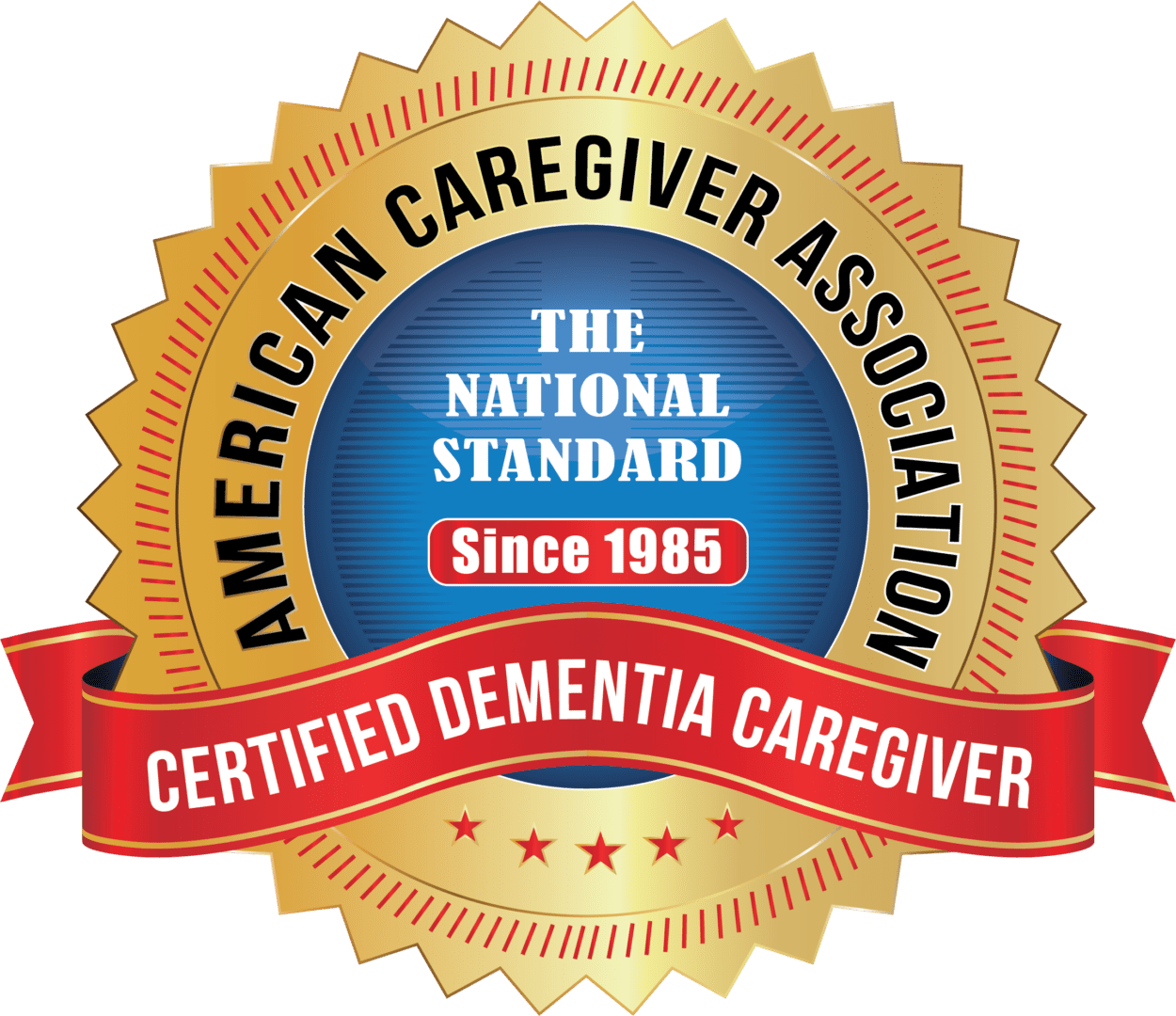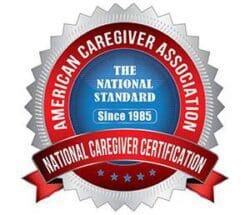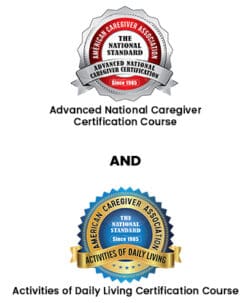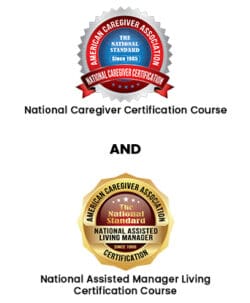National Dementia Certification Course
Price range: $99.00 through $118.99
Description
Learn How to Care for Someone with Dementia by Completing the National Dementia Certification Course
Imagine watching a loved one slowly lose their memories and sense of self. Dementia can be devastating, but with the right knowledge and strategies, you can provide effective, compassionate care. This is why taking this course is so very important.
What is Dementia?
Dementia is a collective term used to describe a range of neurological conditions that impair cognitive functions such as memory, reasoning, and judgment. Unlike normal aging, dementia profoundly affects a person’s day-to-day functioning and quality of life. It involves progressive brain cell damage, which obstructs the ability to remember, think, or make decisions.
Dementia is not a specific disease but rather a syndrome — a group of symptoms that impact memory, daily activities, and communication abilities. It’s crucial to distinguish dementia from forgetfulness due to aging; while minor memory lapses are normal as people grow older, dementia marks a significant decline in cognitive capabilities.
Types of Dementia
Dementia encompasses a variety of types, each caused by different biological changes in the brain. Alzheimer’s Disease is the most common form, accounting for 60-80% of cases, characterized by plaques and tangles in the brain. Vascular Dementia occurs due to reduced blood flow to brain regions, often after a stroke or series of small strokes.
Lewy Body Dementia involves protein deposits in brain cells, resulting in issues with movement and cognition. Frontotemporal Dementia primarily affects the brain’s frontal and temporal lobes, manifesting in personality changes and language difficulties.
Each type has distinct symptoms and progression patterns, necessitating specific management approaches. Knowing the type of dementia your loved one is dealing with can guide appropriate interventions and treatment plans, helping to tailor care to their unique needs and challenges.
Symptoms and Stages of Dementia
Dementia progresses in stages: Early-stage symptoms include mild memory loss, difficulty in finding words, and occasional disorientation. At this stage, individuals can usually function independently but may struggle with complex tasks. Mid-stage symptoms involve increased confusion, frequent memory lapses, difficulty in recognizing familiar people and places, and behavioral changes such as irritability. Assistance with daily activities becomes necessary as their independence diminishes. Late-stage symptoms are severe, with profound memory loss, inability to communicate effectively, significant physical impairment, and a high level of dependence on caregivers for all basic activities.
The Role of a Family Caregiver: Emotional Impact on Caregivers
Being a family caregiver for someone with dementia can be emotionally taxing. Feelings of stress, guilt, and grief are common as you witness the decline of a loved one’s cognitive abilities. The role can be overwhelming, leading to caregiver burnout if adequate self-care and support systems are not in place. It’s essential to acknowledge these emotions and seek help when needed.
Practicing self-care by setting aside time for personal hobbies, maintaining social connections, and perhaps seeing a therapist can help caregivers manage their mental health. Respite care can offer temporary relief, allowing caregivers to recharge. Understanding that these emotions are normal and seeking support can mitigate the risk of burnout, ensuring that caregivers can maintain their health while providing compassionate care.
Building a Support System
Creating a robust support system is crucial for caregivers. Involve family members and friends to share caregiving responsibilities, reducing the burden on any single person. Open communication about the needs, schedules, and care tasks can help in coordinating efforts and providing consistent care. Utilize community resources such as support groups, which offer emotional support and practical advice from those in similar situations.
Many communities also offer respite care services, adult day programs, and home healthcare aides. Online forums and groups can provide a broader network of support and resources. Maintaining a support network helps caregivers manage stress, gain new perspectives, and ensure the well-being of both them and their loved one.
Practical Strategies for Managing Dementia: Daily Care and Routine
Establishing a consistent daily routine helps reduce confusion and agitation in individuals with dementia. Predictability provides a sense of security and familiarity. Start by maintaining regular wake-up, meal, and bedtime schedules. Simplify daily tasks and break them down into smaller, manageable steps, providing clear, simple instructions.
Use visual cues and labels around the house to guide them through their daily activities. Engage them in meaningful activities that they enjoy, such as gardening, music, or simple chores, to keep them active and involved. Avoid overstimulation by limiting choices and maintaining a calm environment. Flexibility is also key—while consistency is crucial, being adaptable to their needs and moods can help ensure their comfort and well-being.
Communication Techniques
Effective communication with someone who has dementia requires patience and empathy. Use clear, straightforward language, keeping sentences short and focused on one idea at a time. Avoid complex instructions or multi-step processes. Maintain eye contact and speak slowly and calmly.
Sometimes, non-verbal communication, such as gestures, facial expressions, and touch, can convey a message more effectively. Be aware of your body language and tone of voice, as they can significantly impact how your message is received. Avoid correcting or arguing with them, as it can cause frustration and distress. Instead, join their reality and validate their feelings, redirecting the conversation if needed.
Managing Behavioral Changes
Dementia can lead to challenging behavioral changes, including aggression, agitation, and wandering. Understanding that these behaviors often stem from confusion, fear, or frustration is essential.
When dealing with aggression or agitation, maintain a calm demeanor and try to identify the cause, whether it’s physical discomfort, environmental factors, or emotional triggers. Redirect their attention to a soothing activity or environment.
For wandering, ensure their safety by creating a secure living space, using locking devices, or utilizing tracking technology. Regular physical activity and structured routines can also help manage restlessness.
Creating a Safe Environment
Safety is paramount when caring for someone with dementia. Start by making home modifications to reduce risks. Remove tripping hazards such as rugs and clutter and ensure adequate lighting throughout the house. Install grab bars in the bathroom and provide non-slip mats. Use locks or alarms on doors and windows to prevent wandering.
Keep dangerous objects, such as sharp utensils and cleaning supplies, out of reach. Label cabinets and drawers to make finding items easier and reduce frustration. Consider using safety devices like bed rails and fall detection systems. Creating a familiar environment with personalized touches, such as family photos, can also provide comfort and reduce confusion.
Health and Wellness
Maintaining physical health and wellness is crucial for individuals with dementia. Ensure they have a balanced diet rich in fruits, vegetables, lean proteins, and whole grains to support cognitive and overall health. Staying hydrated is equally important. Encourage regular physical activity, such as walking or chair exercises, to promote circulation, reduce restlessness, and improve mood.
Mental stimulation is vital; engage them in activities like puzzles, reading, or memory games tailored to their abilities. Establish a good sleep routine, as quality rest is essential for both mental and physical health. Regular medical check-ups are important for monitoring their health and managing any coexisting conditions.
Legal and Financial Considerations: Planning for the Future
Future planning is critical for families dealing with dementia. Establishing legal documents such as a durable power of attorney, living will, and healthcare proxy ensures that your loved one’s wishes are respected, and their affairs are managed properly. It’s advisable to consult with an attorney who specializes in elder law to navigate these complex areas. Discuss financial planning early on to manage assets, income, and healthcare costs.
Consider long-term care insurance and explore government programs that may provide financial assistance. Creating a comprehensive care plan that includes legal, financial, and medical considerations can alleviate stress and provide a roadmap for making informed decisions. Proactive planning allows families to focus on providing care and support, knowing that future uncertainties and challenges are addressed.
Accessing Insurance and Benefits
Understanding and navigating insurance and benefits can significantly ease the financial burden of dementia care. Familiarize yourself with Medicare and Medicaid options, which can cover various medical expenses, including hospital stays, home health care, and hospice. Review the eligibility requirements and benefits offered by these programs.
Additionally, some long-term care insurance policies can help offset the costs of in-home care or assisted living. Investigate veteran benefits if applicable, as programs like VA Aid and Attendance can provide financial assistance for veterans and their spouses.
Explore community-based programs and non-profit organizations that offer grants, discounts, and support services. Being well-informed about available resources ensures that your loved one receives the necessary care without undue financial strain.
Long-Term Care Options: In-Home Care vs. Assisted Living
Choosing between in-home care and assisted living depends on the individual’s needs and the family’s resources. In-home care allows the person to stay in familiar surroundings, receiving personalized support from caregivers. This option can be less disruptive and provides a sense of comfort and security. Professional caregivers can assist with daily activities, and medical needs, and provide companionship. However, in-home care can be costly and may require modifications to the home for safety.
Assisted living facilities, on the other hand, offer a structured environment with professional staff available 24/7. These facilities provide meals, housekeeping, medical care, and social activities tailored to residents’ needs. Assisted living can be a good option for individuals who need more comprehensive support than can be provided at home. It’s important to visit potential facilities, speak with staff, and understand the services and costs involved.
Evaluating Care Facilities
When evaluating care facilities for a loved one with dementia, several factors should be considered. Begin by researching and visiting multiple facilities to compare their services, environments, and personnel. Assess the quality of care by observing staff interactions with residents, evaluating cleanliness, and asking about staff training in dementia care. Inquire about the facility’s safety measures, including security protocols to prevent wandering and emergency response systems.
Review the array of activities and programs offered to ensure they provide appropriate mental and physical stimulation. Check for proper licensing and any history of violations or complaints. Speak with current residents and their families to gather insights on their experiences. Inquire about the facility’s approach to managing dementia-related behaviors and their policies on family involvement in care.
Support Resources for Families: Finding Support Groups
Support groups can be an invaluable resource for families dealing with dementia. They provide a platform to share experiences, gain insights, and receive emotional support from others facing similar challenges. To find support groups, start by checking with local hospitals, community centers, or religious organizations. Many non-profits, such as the Alzheimer’s Association, offer support group directories on their websites.
Online platforms also host virtual support groups, which can be convenient for those unable to attend in person. Joining a support group can help caregivers feel less isolated, reduce stress, and provide practical advice for managing the complexities of dementia care.
Utilizing Community Resources
Community resources can provide much-needed support for families managing dementia care. Look into local senior centers, which often offer programs and activities designed for individuals with dementia. Adult daycare centers provide a safe environment where your loved one can engage in structured activities, giving caregivers time for themselves. Many communities offer respite care services, allowing caregivers a temporary break from their duties.
Non-profit organizations and charities may provide grants, financial assistance, or donated services, such as home modifications. Some communities have volunteer organizations that offer companionship, transportation, and assistance with errands. Pharmacies and healthcare providers can also suggest resources tailored to dementia care.
The Certification Process
The certification process for the National Alzheimer’s Certification Course is simple, and the online training course can easily be completed within 2-3 days. However, if you need, or want to more time to complete your course then you have it! There are no time limits to finishing any ACA course. This puts you in control of when you start and finish your course.
Questions? Email us at info@americancaregiverassociation.org, call us at 1-800-625-8108, or chat with our ACA Care Team on our website.
Check out all of our courses and bundle options here.
Check out all of our videos on our YouTube Channel here.
Additional information
| Selection Options and Prices | National Caregiver Certification Course, National Caregiver Certification Course AND Caregiver ID Card Bundle, National Caregiver Certification Course, ID Card, and Embossed Certificate Bundle |
|---|---|
| Options | National Dementia Certification Course, National Dementia Certification Course AND Embossed Certificate Bundle |





